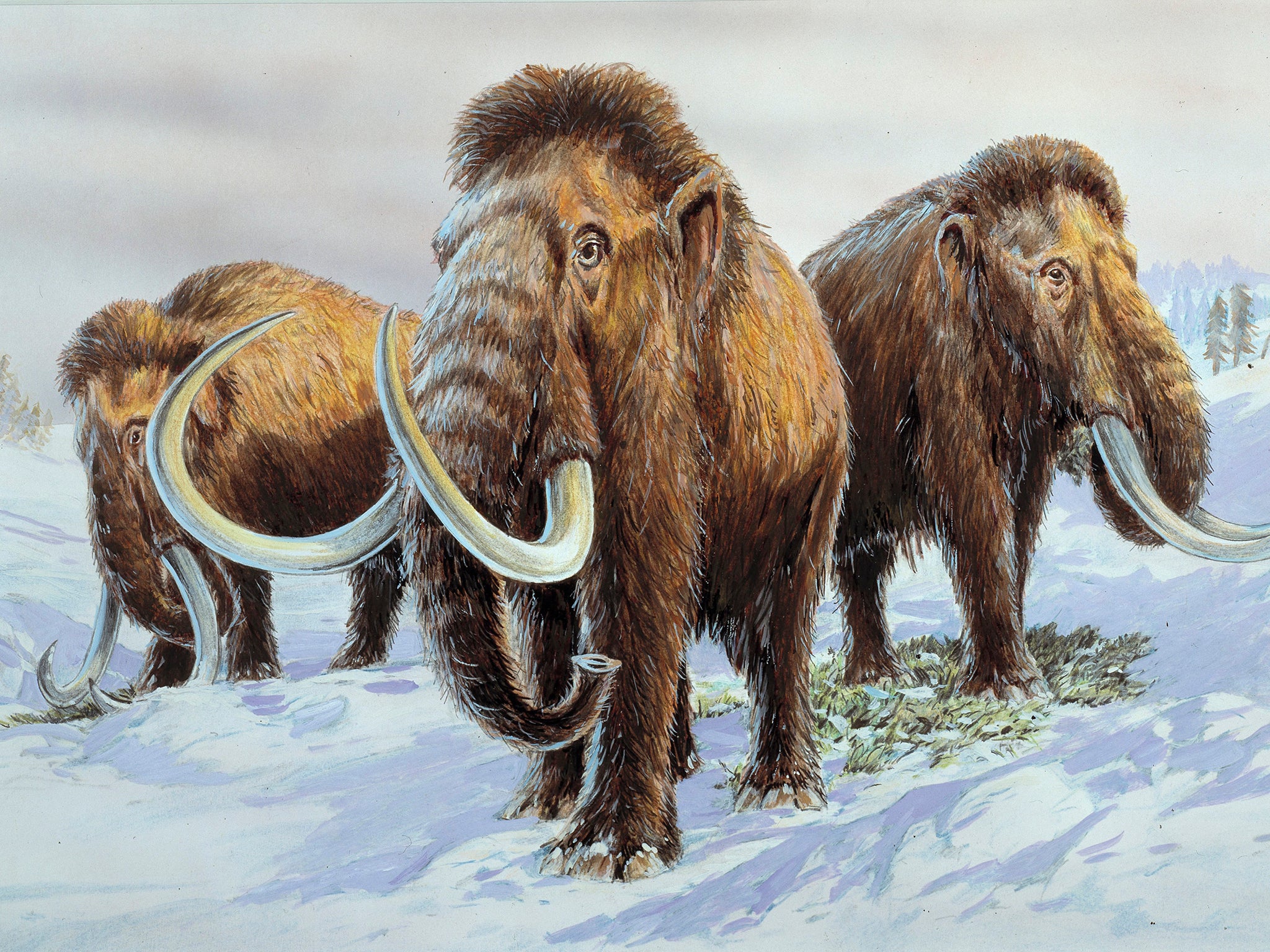Last woolly mammoths on Earth ‘killed off by lack of water’
The last population of mammoths on St Paul island in Alaska became extinct around 5,600 years ago

One of the last populations of woolly mammoths on Earth was likely killed off by a lack of fresh water, new research suggests. The study, published in the journal Proceedings of the National Academy of Sciences, saw researchers piece together the extinction of the animals by studying the mammoths’ bones and teeth, and the fossilised remains of ancient aquatic insects in lake sediments.
The mammoths on a remote Alaskan island of St Paul are believed to have become trapped by rising sea levels, which submerged the Bering Sea land bridge that connected Siberia and the North American continent.
Their isolation on the island meant there was less land available for the animals to discover new fresh water supplies, which became increasingly scarce as conditions became drier.
As the island shrank in size, the mammoths became trapped in an ever-decreasing space, with less and less access to fresh water. Pollen from the lake sediments showed the mammoths had cleared the area around the lake of vegetation.
"It paints a dire picture of the situation for these mammoths," said Dr Matthew Wooller, from the University of Alaska Fairbanks, who co-led the research. "Freshwater resources look like the smoking gun for what pushed them into this untenable situation."
The scientists said the study highlights to overlooked role that water availability may play in extinctions.
The study has also been noted for providing one of the most accurate dates for prehistoric extinction.
Scientists have dated the extinction of the mammoths on St Paul to around 5,600 years ago, meaning their population survived some 5,000 years longer than the mammoths on the mainland. Previous research had dated the remains of five mammoths from St Paul Island to around 6,480 years ago.
"It's amazing that everything turned out so precisely with dating of extinction at 5,600 plus or minus 100 years," said co-author Professor Russell Graham, from Pennsylvania State University.
Additional reporting by Press Association
Join our commenting forum
Join thought-provoking conversations, follow other Independent readers and see their replies
Comments
Bookmark popover
Removed from bookmarks